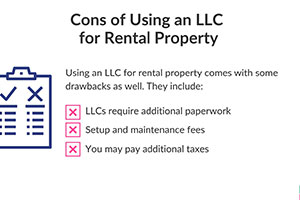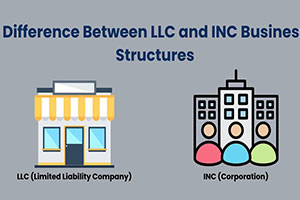Can a Trust own an LLC? A Legal Harmony
Business | by
Navigating the intricate world of asset protection and estate planning, one question often arises: Can a trust own an LLC? This query opens the door to exploring how blending the legal structures of trusts and Limited Liability Companies (LLCs) can serve as a strategic advantage in safeguarding assets and planning for the future. Let’s dive into the legalities and practicalities of this question, shedding light on a topic that sits at the crossroads of estate planning and business law.
Unpacking the Basics
Before we explore the relationship between trusts and LLCs, it’s crucial to understand what these terms mean in the legal realm.
- Limited Liability Company (LLC): An LLC is a flexible business structure that offers its owners, known as members, limited liability protection, and potential tax advantages. It combines the liability protection of a corporation with the tax efficiencies and operational flexibility of a partnership.
- Trust: A trust is an estate planning tool where a trustee holds the legal title to property or assets for the benefit of the trust’s beneficiaries. Trusts are established to provide legal protection for the trust’s assets, to ensure those assets are distributed according to the wishes of the trust’s creator (settlor), and possibly to save on taxes.
The Legal Intersection
Now, to the heart of the matter: Yes, a trust can own an LLC. This arrangement is not only permissible under U.S. law but can also be a savvy estate planning strategy. When a trust holds ownership interest in an LLC, it combines the liability protection of the LLC with the asset protection and estate planning benefits of a trust.
Strategic Advantages
1. Enhanced Asset Protection: By placing the LLC membership interests in a trust, the assets owned by the LLC gain an additional layer of protection from creditors and legal judgments against the beneficiaries.
2. Estate Planning and Succession: Ownership of an LLC through a trust facilitates smoother succession planning. Upon the settlor’s death, the LLC interests held in the trust can be transferred to the beneficiaries without the need for probate, ensuring business continuity and privacy.
3. Tax Considerations: Depending on the type of trust that owns the LLC (e.g., revocable vs. irrevocable), there may be significant tax advantages, including potential savings on estate taxes and the ability to streamline the distribution of income to beneficiaries.
Setting the Stage: How to Structure the Ownership
- Establish the Trust: The first step is creating a trust, which involves drafting a trust agreement that specifies the trustee, beneficiaries, and terms under which the trust will operate.
- Transfer LLC Membership Interest: The LLC membership interests are then transferred into the trust. This process typically requires an amendment to the LLC’s operating agreement to acknowledge the trust as a member.
- Operational Considerations: It’s important for the LLC’s operating agreement to outline the trustee’s rights and obligations as a member, ensuring the LLC can operate smoothly under the trust’s ownership.
Navigating the Challenges
While the benefits are clear, there are challenges and considerations to address:
- Legal and Tax Implications: The specific legal and tax consequences of a trust owning an LLC can vary significantly depending on the state laws governing LLCs and trusts, as well as the federal tax treatment of both entities.
- Operational Flexibility: The trustee’s authority to make decisions on behalf of the LLC, especially in day-to-day operations, must be carefully outlined to avoid conflicts.
- Choosing the Right Trust: The choice between a revocable trust, which offers flexibility and control to the settlor, and an irrevocable trust, which provides greater asset protection, will have profound implications for the strategy’s effectiveness.
Conclusion: A Path Worth Considering
Incorporating a trust to own an LLC presents a potent strategy for asset protection, estate planning, and tax efficiency. Like any legal maneuver, it requires careful planning, a clear understanding of the objectives, and guidance from legal professionals specializing in estate planning and business law. With the right approach, the convergence of trusts and LLCs can offer a robust solution for securing your legacy and ensuring the prosperity of your business ventures for generations to come.






